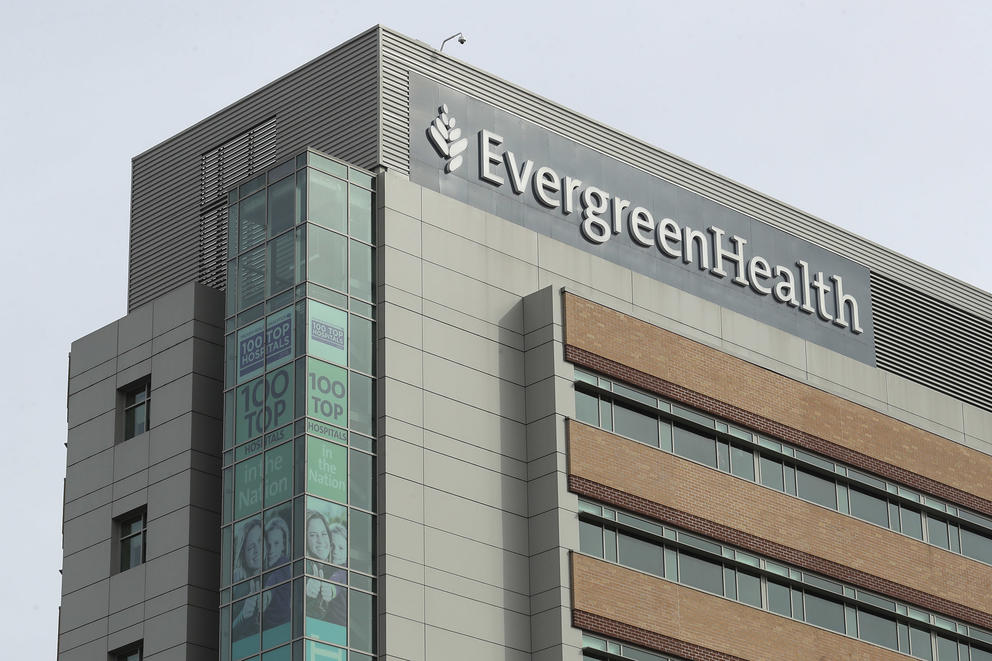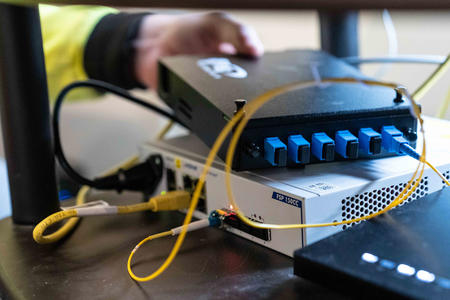The board’s split 4-3 decision provided an average of about $9,200 in additional compensation to 206 managers across the EvergreenHealth system, officials said, at a time when the facility has since reported millions of dollars in operating losses.
While EvergreenHealth had nearly $12 million in net income in 2021, including more than $6 million in federal stimulus funding, hospital officials have sounded an alarm in recent months that they could lose twice that this year.
“We’re losing money,” Commissioner Minerva Butler said later, “that’s one of the big reasons I voted no.”
The EvergreenHealth commissioners did not receive any additional pay as a result of the June vote, but the bonus payouts seem to fall in a legal gray area on pandemic aid. Some hospitals count it as revenue. Others don’t. Across the state, administrators at Prosser Memorial Health, another publicly funded hospital that received federal relief, decided in 2021 to exclude those dollars from their revenue calculation for bonuses.
A spokesperson for Prosser Memorial told Crosscut its leadership took a cautious approach to approving performance bonuses — ultimately declining to count federal aid as earned revenue.
“COVID relief funds aren’t part of our bottom line,” chief communications officer Shannon Hitchcock said. “So it didn't seem like a very logical way to take credit for this money that wasn't generated through our traditional way.”
Bonuses tied to financials
EvergreenHealth, or King County Public Hospital District No. 2, provides “leadership at-risk compensation” (LARC) as one part of its overall management compensation package. Commission Chair Tim McLaughlin said managers and above are assessed on their performance in a range of areas such as quality of care and patient satisfaction.
But they are eligible for LARC compensation only if the entire health system meets a certain threshold related to budgeted net operating income — the money left over after operating expenses are subtracted from operating revenue.
This story is a part of Crosscut’s WA Recovery Watch, an investigative project tracking federal dollars in Washington state.
The federal CARES Act Provider Relief Fund helped health care providers offset unanticipated costs during the pandemic, with grants distributed starting in 2020. EvergreenHealth received over $43 million in 2020 and 2021. Government entities exclude such federal grants from net operating income totals.
In June, the hospital’s chief financial officer and chief human resources officer proposed, and the commissioners voted in favor of, allowing federal relief grants to be included in operating revenue for the purposes of the LARC trigger.
McLaughlin explained these CARES Act grants were meant to be matched against additional operating expenses and lost revenue due to COVID-19.
“That is essentially the rationale for why … this exception was presented to the board,” he said, “and sort of the rationale for why it made sense.”
The board’s decision to include the CARES funding in the calculation pushed operating income past the threshold to trigger management bonuses. EvergreenHealth spokesperson Kayse Dahl said the bonuses amount to $1.9 million across 206 positions systemwide, but did not provide a breakdown of specific payouts.
McLaughlin wanted to make clear that EvergreenHealth “did not divert CARES money to line the pockets of executives or anything like that.”
In the wake of the bonus decision, a “concerned employee” sent a letter about the vote to at least two people, one of whom shared it with Crosscut. Redmond blogger Bob Yoder first covered this issue in July.
“The hospital is struggling to keep nurses and other key staff to serve its patients,” the anonymous letter stated, “and those funds could have been used to serve the community and not line the pockets of the administrators."
Benchmarks vary by hospital
McLaughlin said the board and administrators consulted with their advisors, Mercer and KPMG, about what other hospitals were doing. They said that many organizations in the past few years have made exceptions and changes to leadership compensation to reflect the exceptional conditions caused by COVID-19.
Crosscut’s sampling of a few hospitals around the state found mixed results. At Prosser Memorial Health, spokesperson Hitchcock said the financial uncertainty of the pandemic led them to make a different decision in 2021: They explicitly ignored the effects of pandemic relief funds on the hospital’s net income when considering bonuses. They have continued using that approach since.
At nonprofit Overlake Medical Center in Bellevue, spokesperson MaryBeth Dagg said that during the pandemic, the goals within their leadership incentive compensation program have deemphasized financial targets. They instead have focused on a range of other targets, such as patient experience and employee engagement.
At the University of Washington’s Valley Medical Center — another large public hospital in the Puget Sound region — financial targets are part of at-risk compensation. Spokesperson Liz Nolan said that they have been including federal grants in net income.
Government entities in Washington state are subject to specific guidelines about retroactive pay and incentive programs. The Municipal Research and Services Center of Washington advises that in order to comply with the state constitution and court interpretation, incentive programs’ performance standards should be “established before the period covered by the program.”
That guidance is for cities and towns, not for a public hospital district like EvergreenHealth. The State Auditor’s Office would not comment on EvergreenHealth because the office needs to maintain independence should this specific issue arise during an audit.
As chair of EvergreenHealth’s finance committee, Commissioner Butler said she voted against the bonus exception for a variety of reasons, in part because the money just isn’t there this year. The hospital’s unaudited financials for the first half of 2022 show a net loss of $29 million. According to annual audited financial statements, the district hasn’t had a net loss in at least the past five years.
And accounting standards for government entities are very clear that federal payments are excluded from operating revenue, Butler said. If they want to consider changing the LARC trigger for the following year, that is a different question.
“We know that at the beginning of the year,” she said. “We know the rules of the game. And so for me to change the rules of the game — that's a pretty substantial change mid-game, mid-stream — that, I say no to that.”






